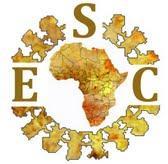 The 50th session of the African Commission on Human and Peoples’ Rights is cause for two major celebrations: the 30th anniversary of the African Charter on Human and Peoples’ Rights (African Charter) and the launch of its Guidelines on economic, social and cultural rights in the African Charter (ESCR Guidelines). A two-day colloquium preceding the session provided 200 participants, mainly representatives of non-governmental organizations (NGOs), from all over Africa an opportunity to take stock of the opportunities, successes, weaknesses and challenges of the African human rights system. In this context, the official launch of the ESCR Guidelines constitutes a landmark achievement to close the implementation gap of the African Charter.
The 50th session of the African Commission on Human and Peoples’ Rights is cause for two major celebrations: the 30th anniversary of the African Charter on Human and Peoples’ Rights (African Charter) and the launch of its Guidelines on economic, social and cultural rights in the African Charter (ESCR Guidelines). A two-day colloquium preceding the session provided 200 participants, mainly representatives of non-governmental organizations (NGOs), from all over Africa an opportunity to take stock of the opportunities, successes, weaknesses and challenges of the African human rights system. In this context, the official launch of the ESCR Guidelines constitutes a landmark achievement to close the implementation gap of the African Charter.
Adopted in 1981 the African Charter protected economic, social and cultural rights on an equal footing to civil and political rights. It was the first time a major international human rights treaty had done so. However, the African Charter was not detailed in its explanation of the content of the rights and the obligations implied by each right. The Guidelines adopted by the Commission have attempted to fully explain the content of the rights and the nature of states’ obligations. In that respect, the Guidelines interpret the Charter as also protecting the right to housing, the right to food, the right to water and the right to social security.
The Principles and Guidelines on the implementation of Economic, Social and Cultural Rights in the African Charter (known as the Nairobi Guidelines) explain in detail the obligations of the States to realize economic, social and cultural rights, particularly minimum core obligations, the elaboration of national frameworks and actions plans for the implementation of rights, and the obligation to provide special attention to vulnerable and disadvantaged groups. The State Party Reporting Guidelines for Economic, Social and Cultural Rights in the African Charter (known as the Tunis Reporting Guidelines) assist States in their reporting on economic, social and cultural rights under the African Charter. Both Guidelines emphasize the importance of civil society participation and serve as important advocacy tools for organizations working towards the realization of economic, social and cultural rights on the continent.
“The ESCR Guidelines make the African Charter a complete instrument for the protection and promotion of human rights. Not only do they confirm economic, social and cultural rights as enforceable rights, but they also assist States to develop national action plans to work
towards realization of these rights,” said Commissioner Atoki, member of the Working Group on Economic, Social and Cultural Rights, which worked to develop the guidelines.
The African Commission was established under the authority of the African Charter and has the mandate to monitor and implement it. The Guidelines are the result of a dialogue and joint efforts between non-governmental organizations and the African Commission. Successful collaboration and joint working is evidenced in other ways with civil society initiatives aiming to complement the work of the Commission. A series of handbooks on economic, social and cultural rights (called ‘Haki Zetu’) was launched during the NGO Forum (published by Amnesty International Netherlands with other partners like COHRE). The launch of the guidelines was therefore the occasion to acknowledge and to celebrate the unique partnership between the African Commission and NGOs that gives a voice to African peoples for the defense of their rights. The NGO Forum that precedes each session of the African Commission is a unique platform worldwide that has created a space for dialogue with the African Commission for more than twenty years.
2011 has generated much hope for the entire world with the “Arab Spring”. The violation of economic, social and cultural rights undermines the roots of democracy – no one that does not enjoy these rights can be expected to fully enjoy the right to life, nor participate in the political life of the country. The launch of the ESCR Guidelines comes at a time when there is a need for the African Commission to support the establishment of these new democracies, help them assess their human rights situation and push their new governments to integrate in their national constitutions and other laws the provisions of the African Charter, as authoritatively interpreted by the ESCR Guidelines.
About the NGO Group on Economic Social and Cultural Rights
The NGO Group on Economic Social and Cultural Rights gathers NGOs with a view to supporting the work of the African Commission in these thematic areas. The following NGOs are part of the NGO group:
• Amnesty International Netherlands, www.amnesty.nl
• Association Justice, Peace and Democracy, www.ajpdangola.org
• Cairo Institute for Human Rights Studies, www.cihrs.org
• East and Horn of Africa Human Rights Defenders Project, www.defenddefenders.org/
• Interights, www.interights.org
• Legal Resources Centre, www.lrc.org.za
• Mozambican League of Human Rights, http://www.ldh.org.mz
• Open Society Initiative of Southern Africa, www.osisa.org
• WaterLex, www.waterlex.org
• West African Human Rights Defenders Network, www.westafricadefenders.org/
• Zimbabwe Lawyers for Human Rights, www.zlhr.org.zw/
• Zimbabwe Women Lawyers Association, www.zwla.co.zw/
Contact person
Hélène Boussard, Research Coordinator, WaterLex
h.boussard@waterlex.org
Share this Post
